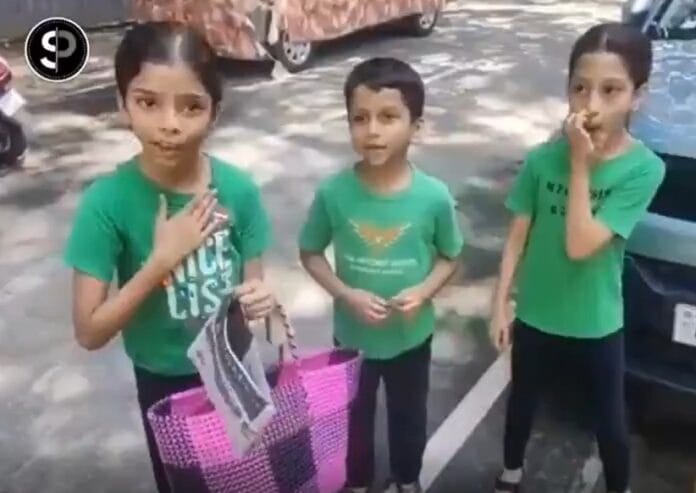November 2, 2025: A heartwarming startup pitch from three young children in Bengaluru has sparked a wave of admiration, and a ripple of concern,across social media. The trio, Sharada, Nachiket, and Samudyata, introduced their eco-conscious venture “Eco Wala,” a handmade paper bag subscription service, through a video that quickly went viral.
Their pitch was so compelling that industrialist Harsh Goenka, Chairman of RPG Enterprises, shared it on X (formerly Twitter), declaring, “Forget Shark Tank, forget Ideabaaz, this pitch stole my heart.”
The children’s business model is refreshingly simple and deeply sustainable. For just ₹10 a month, subscribers receive two handmade paper bags delivered to their doorstep every Sunday. The bags are crafted without glue or scissors, relying on folding techniques that minimize waste and maximize creativity. Eco Wala also offers additional bags for events and functions, and provides free samples to new customers, a thoughtful touch that reflects both marketing savvy and community spirit.
Eco Wala: Young Founders Stir Sustainability Buzz and Controversy
Social media users were quick to celebrate the children’s confidence and clarity. Many praised their poise, noting that even adults might struggle to deliver such a pitch with equal precision. Comments ranged from “pure motivation” to “a lesson in environmental responsibility delivered for ₹10 a month.” One user wrote, “This isn’t just a startup, it’s a movement. We need more of this culture of small, one-person businesses. Let startups do their work, but this is what India really needs.”
However, the viral success of Eco Wala also stirred a more cautious conversation. Some users expressed concern about the growing trend of involving children in entrepreneurial ventures. “Why burden kids with business responsibilities?” one comment read. Another user questioned the authenticity of the pitch, suggesting it may have been scripted or driven by adults behind the scenes. “Let children enjoy their childhood,” they urged.
This dual reaction highlights a broader societal tension: the desire to nurture innovation and responsibility in children, versus the need to protect their innocence and ensure they are not prematurely pushed into adult roles. While many see Eco Wala as a brilliant example of experiential learning and environmental stewardship, others worry it reflects a growing pressure on children to perform and produce.
The debate also touches on the evolving nature of education and parenting in India. With increasing emphasis on real-world skills, creativity, and sustainability, initiatives like Eco Wala are becoming more common in schools and homes. But the line between encouragement and exploitation remains thin, and subjective.
Ultimately, Eco Wala’s story is a testament to the power of simplicity, sincerity, and social impact. Whether viewed as a startup, a school project, or a symbol of changing times, it has undeniably captured the imagination of thousands. And in doing so, it has sparked a necessary conversation about what it means to raise responsible, creative, and free-thinking children in today’s world.



